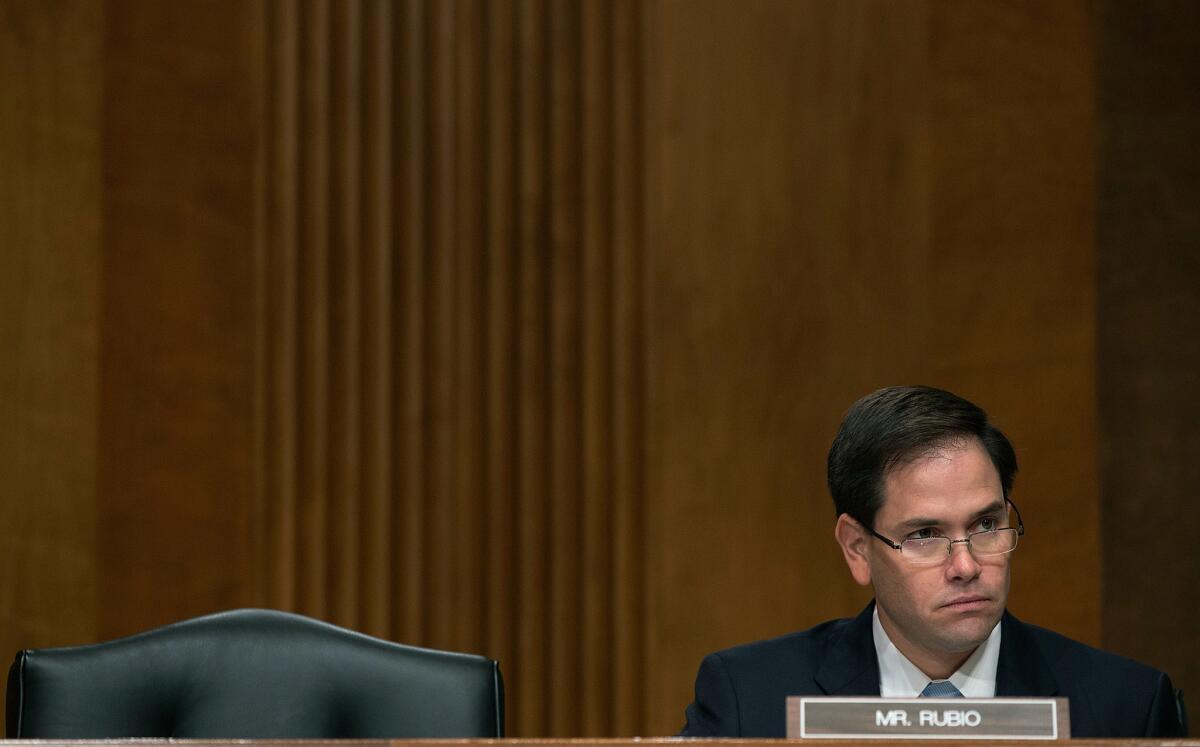GOP holds advantage over Democrats in electing Latino politicians

- Share via
Democrats might have selected the keynote speaker at their convention to rally Latino voters, but the pick also illuminated the fact that as far as young Latino politicians go, the party doesn’t have a very deep bench.
The Democratic National Convention Committee selected San Antonio Mayor Julian Castro, 37 -- whose twin brother, Joaquin, will almost certainly be elected to Congress from Texas in November -- as its keynote speaker in Charlotte, N.C.
Though San Antonio has a population of 1.3 million, Castro is still a local officeholder. Compare that to the long list of nationally prominent Republican Latinos: Florida senator and potential Romney running mate Marco Rubio; Republican Latino governors Susana Martinez of New Mexico and Brian Sandoval of Nevada; and Ted Cruz, a Latino Republican in Texas who is favored Tuesday to win a GOP runoff for a U.S. Senate seat. (The runoff winner also would be favored in the general election.)
There are no Latino Democratic governors, and just one senator, New Jersey’s Robert Menendez, who is 58. Rep. Xavier Becerra (D-Los Angeles), 54, is a member of the House Democratic Caucus. Even in California, a state with some prominent Latino local elected officials, few Democrats have made a national name for themselves. (Los Angeles Mayor Antonio Villaraigosa, who chairs the Democratic convention, is 59.)
“Democrats in California and Texas and Arizona haven’t been able to launch a statewide candidate who has been successful,” said Sylvia Manzano, an analyst with Latino Decisions. “I think that really is unexpected and certainly not for a lack of talent.”
That’s especially surprising because outside of Florida, Latinos overwhelmingly vote for Democrats.
“Democrats have not been as aggressive in terms of looking at political leadership,” Manzano said.
When Julian Castro ran for mayor the first time in 2005, for example, the Democratic Party instead rallied behind retired Judge Phil Hardberger, who beat Castro in a runoff. In Texas, where non-Latino whites make up less than 50% of the population, Democrats elected their first Latino party chairman as recently as June.
Republicans have been more strategic about nurturing and promoting Latino politicians over the decade, even in areas where they weren’t supported by Latino voters.
“They’ve been very successful at getting Latinos elected by non-Latinos,” she said.
Follow Politics Now on Twitter
Twitter: @alanasemuels
More to Read
Get the L.A. Times Politics newsletter
Deeply reported insights into legislation, politics and policy from Sacramento, Washington and beyond. In your inbox twice per week.
You may occasionally receive promotional content from the Los Angeles Times.











